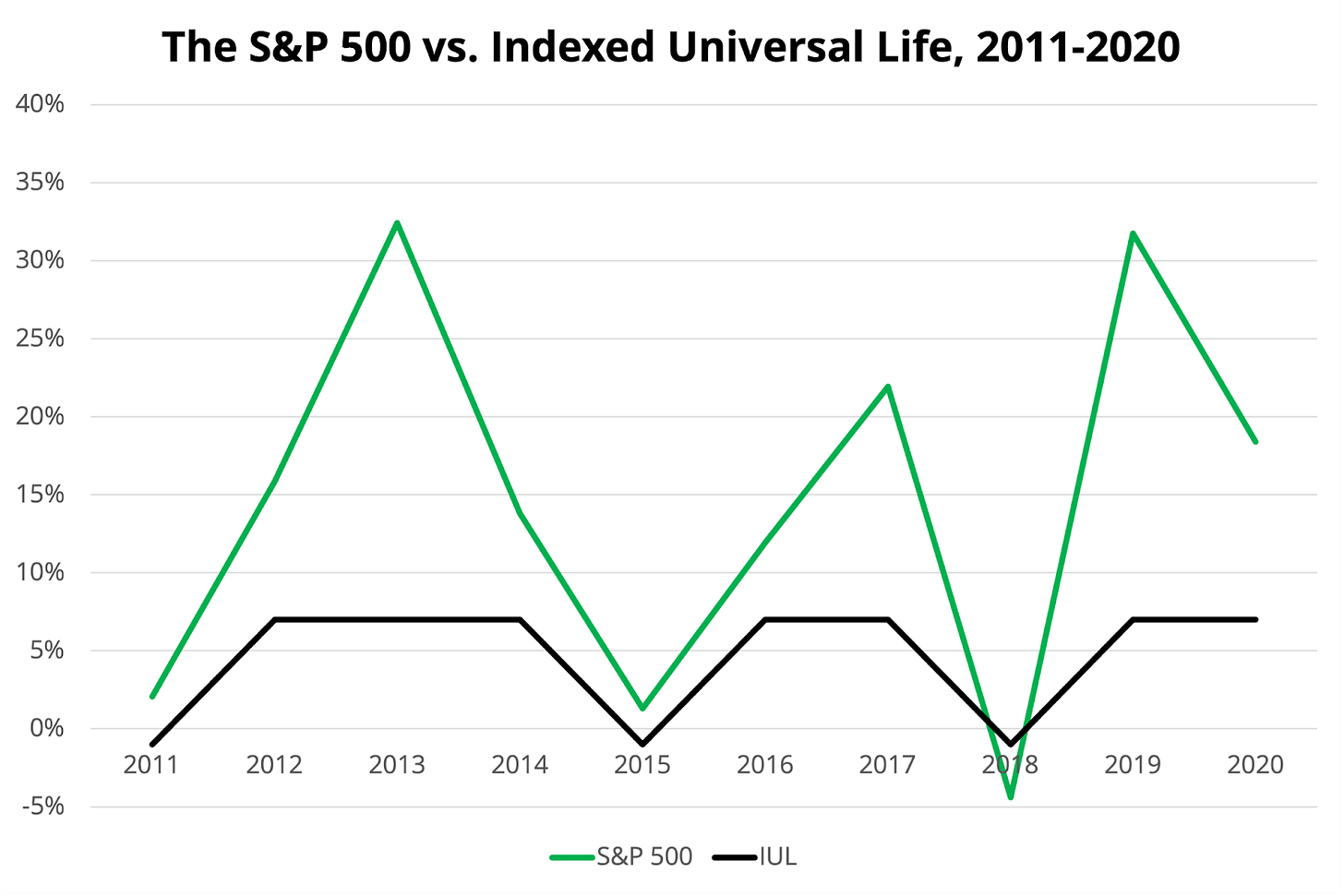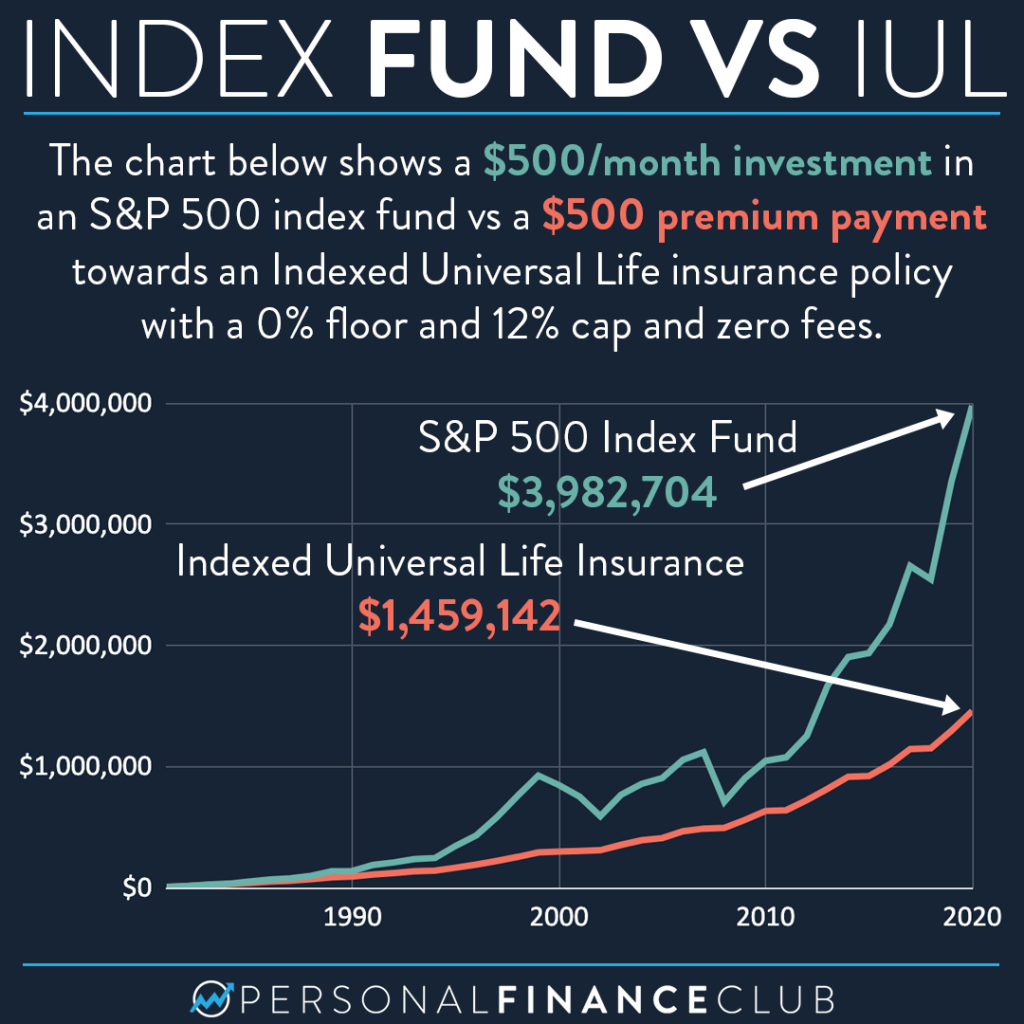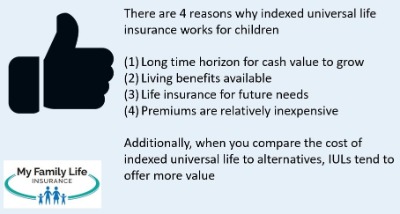All Categories
Featured
Table of Contents
1), often in an effort to defeat their category standards. This is a straw guy argument, and one IUL individuals enjoy to make. Do they compare the IUL to something like the Lead Overall Stock Exchange Fund Admiral Shares with no lots, an expense proportion (ER) of 5 basis points, a turnover ratio of 4.3%, and an outstanding tax-efficient record of circulations? No, they contrast it to some dreadful proactively handled fund with an 8% load, a 2% ER, an 80% turnover proportion, and a dreadful record of temporary resources gain circulations.
Mutual funds usually make annual taxed distributions to fund proprietors, even when the worth of their fund has dropped in worth. Common funds not only need income reporting (and the resulting annual tax) when the common fund is going up in value, however can additionally enforce income tax obligations in a year when the fund has actually dropped in worth.
You can tax-manage the fund, harvesting losses and gains in order to minimize taxable distributions to the investors, yet that isn't somehow going to alter the reported return of the fund. The ownership of mutual funds might require the mutual fund owner to pay projected taxes (cost of insurance increase universal life).

IULs are very easy to place so that, at the owner's death, the recipient is not subject to either revenue or inheritance tax. The exact same tax obligation reduction strategies do not function almost also with shared funds. There are numerous, commonly pricey, tax catches associated with the moment buying and selling of mutual fund shares, catches that do not relate to indexed life insurance policy.
Possibilities aren't very high that you're going to be subject to the AMT due to your common fund circulations if you aren't without them. The remainder of this one is half-truths at finest. While it is real that there is no earnings tax due to your successors when they acquire the earnings of your IUL plan, it is additionally true that there is no income tax obligation due to your heirs when they acquire a mutual fund in a taxed account from you.
Equity Indexed Life
The federal estate tax exemption limitation is over $10 Million for a couple, and growing yearly with inflation. It's a non-issue for the vast bulk of medical professionals, a lot less the rest of America. There are much better methods to prevent inheritance tax issues than getting financial investments with low returns. Mutual funds may create income taxation of Social Safety advantages.

The growth within the IUL is tax-deferred and might be taken as free of tax revenue using lendings. The policy owner (vs. the mutual fund manager) is in control of his/her reportable earnings, therefore enabling them to reduce and even remove the tax of their Social Safety advantages. This set is fantastic.
Right here's another marginal problem. It holds true if you purchase a mutual fund for claim $10 per share just before the circulation day, and it disperses a $0.50 distribution, you are after that mosting likely to owe tax obligations (probably 7-10 cents per share) despite the reality that you haven't yet had any gains.
In the end, it's truly regarding the after-tax return, not how much you pay in taxes. You are going to pay even more in tax obligations by utilizing a taxable account than if you buy life insurance coverage. You're likewise most likely going to have more cash after paying those tax obligations. The record-keeping requirements for owning common funds are significantly a lot more intricate.
With an IUL, one's records are maintained by the insurance provider, copies of yearly declarations are sent by mail to the proprietor, and circulations (if any) are completed and reported at year end. This set is additionally kind of silly. Of course you must keep your tax obligation records in situation of an audit.
Index Universal Life Insurance Companies
Rarely a reason to get life insurance. Common funds are commonly component of a decedent's probated estate.
On top of that, they go through the delays and costs of probate. The profits of the IUL policy, on the other hand, is always a non-probate circulation that passes beyond probate straight to one's called beneficiaries, and is consequently exempt to one's posthumous lenders, undesirable public disclosure, or similar delays and prices.
We covered this one under # 7, yet simply to evaluate, if you have a taxed mutual fund account, you should put it in a revocable count on (and even easier, utilize the Transfer on Death designation) to avoid probate. Medicaid disqualification and lifetime income. An IUL can give their proprietors with a stream of earnings for their entire lifetime, despite how much time they live.
This is valuable when arranging one's events, and converting possessions to revenue before an assisted living facility arrest. Shared funds can not be transformed in a comparable fashion, and are practically constantly taken into consideration countable Medicaid possessions. This is one more stupid one promoting that bad individuals (you understand, the ones who need Medicaid, a federal government program for the inadequate, to spend for their assisted living facility) must utilize IUL rather of common funds.
Iul Vs 401k Calculator
And life insurance policy looks horrible when contrasted relatively versus a retirement account. Second, people that have money to get IUL above and past their retired life accounts are mosting likely to have to be awful at handling money in order to ever before get Medicaid to pay for their retirement home expenses.
Chronic and incurable health problem cyclist. All policies will certainly permit a proprietor's easy access to cash money from their policy, commonly waiving any type of surrender charges when such individuals suffer a severe disease, need at-home care, or become restricted to an assisted living facility. Mutual funds do not supply a comparable waiver when contingent deferred sales charges still apply to a shared fund account whose proprietor requires to offer some shares to money the prices of such a remain.
Iul Tax Free Income
Yet you reach pay even more for that benefit (cyclist) with an insurance coverage. What a good deal! Indexed global life insurance policy gives survivor benefit to the beneficiaries of the IUL owners, and neither the owner nor the recipient can ever shed money because of a down market. Mutual funds give no such assurances or fatality benefits of any kind.
I certainly do not need one after I reach financial freedom. Do I desire one? On average, a buyer of life insurance policy pays for the real price of the life insurance coverage benefit, plus the prices of the plan, plus the profits of the insurance policy company.
Indexation Insurance
I'm not entirely certain why Mr. Morais threw in the entire "you can not shed cash" again below as it was covered fairly well in # 1. He just wished to duplicate the most effective marketing point for these points I expect. Once more, you do not lose nominal bucks, but you can shed genuine bucks, along with face significant possibility cost due to reduced returns.

An indexed global life insurance coverage policy owner may trade their policy for an entirely different policy without causing earnings taxes. A mutual fund proprietor can stagnate funds from one shared fund business to an additional without marketing his shares at the previous (therefore causing a taxable event), and repurchasing brand-new shares at the last, frequently subject to sales costs at both.
While it holds true that you can trade one insurance coverage for another, the factor that people do this is that the initial one is such a dreadful policy that even after acquiring a brand-new one and going with the very early, unfavorable return years, you'll still appear ahead. If they were sold the best policy the very first time, they shouldn't have any type of need to ever exchange it and experience the very early, unfavorable return years again.
Latest Posts
Equity Indexed Insurance
Best Variable Universal Life Insurance Policy
Index Life Insurance Companies